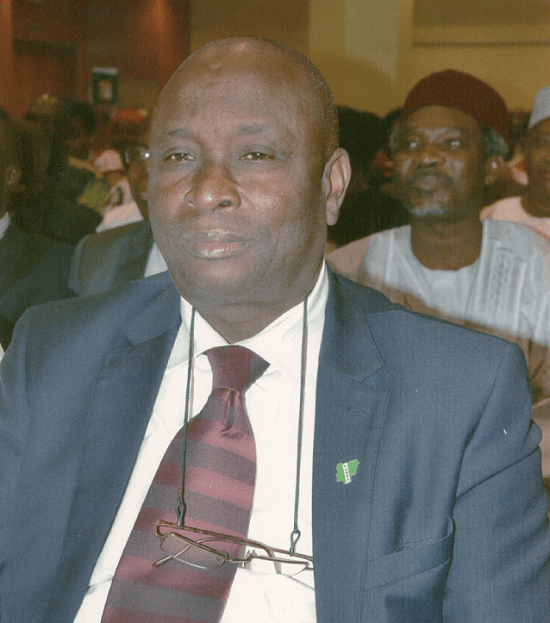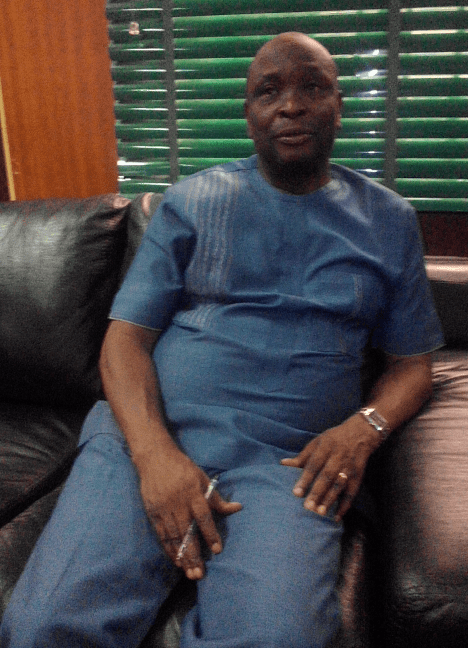Pharm. Sam Oghene-Etatuvie is the director general of the Nigerian Natural Medicine Development Agency (NNMDA). In this exclusive interview with Temitope Obayendo, he decried the poor attention given to the country’s rich medicinal plants, emphasising the need for pharmacists to revert to the development of local herbs for the holistic well-being of the citizenry. Excerpts:
Tell us a little about yourself sir
I am a graduate of Pharmacy from the University of Benin. I started off like every other pharmacist, beginning my practice from the hospital. I advanced to the community, and then landed at the Nigerian Natural Medicine Development Agency as a chief researcher. By the special grace of God, I devoted my time to the job and I was able to rise through the ranks to become the director general of the agency in May, 2015.
Information about natural medicine is gaining prominence, as it appears more people are choosing natural medicines over orthodox ones. What is the agency doing to boost the development of these local medicines?
This agency was established in 1997 with the major mandate to research, develop, promote and conserve Nigerian natural medicines resources, which have the medicinal and the non-medicinal aspects – which include bone-setting, herbal medicines, bio-resources. We are aware that there is a global resurgence in natural medicines awareness; basically, because people are taking responsibility for their own health than before.
There is this general assumption that natural medicines have no side-effects, are cheaper, easily accessible and affordable. These are the factors drawing people to natural medicines. And the concept of natural medicine is holistic, combined both for spiritual and physical well being. Unlike orthodox medicines, which are treatment-based and diseases-driven.
Over the years, the World Health Organisation has encouraged governments across the globe to develop their traditional medicines knowledge, stressing that this is a way of making healthcare services more accessible to all. What is your take on this?
Our practice deals more with the traditional practice area. We are not interested in isolation and characterisation of the active substance. We want to do it the way of traditional practice. To facilitate this, we do a lot of training for the practitioners, but our trainings have been limited these days, due to inadequate funding.
Normally, we pay the participants’ transportation and feeding. Our research focuses on malaria prevention, focusing on herbs with scientifically-proven antiplasmodium agents, while promoting herbal extracts with insecticide-treated nets for the management of malaria.
Government is interested in local production of herbal products; but the challenge is how to make raw materials available. Many practitioners go into the bush to source for these materials.
Following the recent increase in the demand for herbal products, many citizens who could not differentiate between standardised and substandard herbal medicines have ended up with kidney diseases. Has the agency taken any step to curb the activities of charlatans?
A lot of information is on the Internet as there are lots of people engaging in the sales of herbal products on the streets and in marketplaces. Their operations negate the laid down rules for the storage of these drugs. We have reached out to the people concerned and discussed better ways of practising with them.
We have a programme on WAP TV called “Health Wise”. We discuss what people should look out for and the importance of getting products that are NAFDAC listed. We also organise Herbfest, an annual event where practitioners, scientists and entrepreneurs come together to share experiences on the practice.
Shouldn’t there be a campaign against the use of herbs paraded on the streets or in the open markets?
The mandate for control belongs to NAFDAC. Our role is recommendation and advisory on how to go about the best practice of herbal products. More of what we do is advocacy and public enlightenment against irrational use of these products.
We also monitor the production of these herbal products. For dosage, since dosage is part of production, it is the owner of the product that knows the actual dosage for a preparation. From about ten years ago, packaging of herbal drugs has drastically improved from what it used to be. That is one of the impacts of our trainings on the practitioners. Formerly, they wrapped their products in cellophane bags, Coca-Cola bottles and so on; but we are moving away from that era now. In fact, NAFDAC has made packaging one of the criteria to make a herbal medicine listed.
Also, we encourage limiting the number of plants in one formula because this makes some drugs more concentrated and injurious to health. Even if a practitioner has up to five plants in a medicine, there must be one greater activity.
Nigeria is blessed with numerous medicinal plants, but just a fraction of these are utilised for the well-being of the citizens. Could you explain reasons for this sir?
It is so because we haven’t been able to document properly. If you look at the practice, it is transfer from one generation to the other. In fact, this is one of our core areas of strength – documentation. We need to document the practice for continuity in practice. The essence of our documentation is to ensure that the agency has what we call the national comprehensive inventory of medicinal plants. Once we do that, we will be able to put it in book and practitioners will have access to them.
We also encourage practitioners to document their own formulas, in order to prevent scarcity of information on the practice. Prior to this time, most aged practitioners died with their knowledge without passing it to the next generation. Although some people think everything herbal is fetish, it is not so. This country has very huge numbers bio-resources in the nine geological areas and six geopolitical zones. We have places like the Obudu Cattle Ranch, Osogbo Groove, Mambila Plateau and others. All these places have special climatic conditions which produce special effects in the medicinal plants grown there.
We must document to narrow down on areas of specialisation. This enables researchers to work better on pharmacopeia.
Since there is abundance of medicinal plants in the country, how can healthcare practitioners and entrepreneurs leverage this for economic empowerment in the face of on-going recession?
This is the period when people and pharmacists in particular need to turn on their innovative and creativity skills. It is unfortunate that most of the herbal medicine s consumed in the country are imported from China, Germany, India and Indonesia; yet these countries do not have more bio-resources than Nigeria. It is also sad to know that some pharmacists who are trained in the art of drug formulation have even distanced themselves from the practice of herbal medicines. Most of us are comfortable with importation and distribution of conventional drugs.
The production of herbal medicine is a comfort zone for those who studied pharmacognosy. Although it could be time-consuming, the truth of the matter is that pharmacists can formulate local herbs as substitutes for all these conventional drugs on arthritis, cold, malaria, fever, and so on. Most of these medicinal plants have been empirically proven to be safe for consumption.
Lack of interest, innovation and knowledge has hindered pharmacists from specialising in this area. If pharmacists knew what is derivable from the practice, many of them would be willing to come back. But we are used to community practice, where they retail Forever Living Products and make quick money. Many pharmacists have been into network marketing, but I think with time and more enlightenment, they will retrace their footsteps.
What is your advice to healthcare practitioners on revenue generation from medicinal plants?
Basically, as practitioners, we are guided by our oath of office; we should operate by the tenets of the profession. We should be more service-oriented, do more research, and get patents in order to get international collaboration.












buy tadalafil online safely – tadalafil dosage tadalafil citrate
Nice observations…